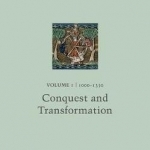
A Prodigy in Auschwitz: Simon
Book
When Nazi Germany troops enter Krakow, Poland on September 2, 1939, fourteen-year-old Simon Baron...
Historical Fiction WWII Auschwitz Jewish Survivor Story
MaryAnn (14 KP) rated A Sparkle of Silver (Georgia Coast Romance #1) in Books
Mar 5, 2019
When security guard Ben Thornton discovers her snooping in the estate's private library, he threatens to have her fired. Still, her story seems too ludicrous to be fiction, and her offer to split the treasure is too tempting to pass up.
Get ready for a romantic escapade through dark halls and dusty corners that will have you holding your breath and sighing with delight.
"A mystery, a treasure hunt, and a split-time romance--all set within a beautiful chateau.
My Thoughts: This is a wonderful romance mystery that keeps the readers' attention from the beginning. You can't help but love Millie, who is taking care of her grandmother diagnosed with dementia. When Milie has to find another home for her grandmother, with little money to do it with, her grandmother tells her of a journal of her great grandmother's that has a treasure map. Who doesn't like a good treasure hunt? And so begins our story of intrigue and romance.
This is a story of a lost romance and a new romance brought together by a unique situation. I believe that readers will enjoy this story as much as I did. It's not only about mystery and love, in this story we find two people trying their best to do right. Millie taking care of her grandmother and Ben trying to right his mother's wrong.

The Porcelain Thief
Book
In 1938, with the Japanese army approaching from Nanking, Huan Hsu's great-great grandfather, Liu,...
Goddess in the Stacks (553 KP) rated Gentleman's Guide To Vice And Virtue in Books
Jun 8, 2018
Given that it's historical fiction, set in Victorian Europe, Percy's biracial heritage has him just seen as black to most people they encounter. Monty doesn't seem to understand what that means, most of the time, and is a little blinded by his rich white boy privilege. He gets talked to a couple of times about how he's being blind to the problems his friend is facing.
I liked that we got to peek under Monty's playboy facade a few times, when being punched has him flashing back to being beaten by his father for being a "disappointment." An interaction between him and a pirate captain was particularly sweet, teaching him to fight back because he's worth defending.
I LOVE Felicity, Monty's sister, and I'm really eager to read her story in the sequel to this book, The Lady's Guide to Petticoats and Piracy. She is so badass, and incredibly intelligent.
The writing was fun, the action well-paced, and the dialogue clever. I was a little put off at first by the size of the book, but I flew through it quickly. I especially liked Monty's bisexuality - how he just cheerfully perved on practically everyone his age. It definitely reminded me of a few people I know!
Something that I noted, near the end of the book, was Percy not asking Monty to stop his perving. What he said was "if you ever go behind my back..." which implies as long as Percy knows, it's not an issue. Yay for non-monogamy being present in YA! It's nice to see alternative relationship structures being presented, though I wish it had been more than just implied.
This was an excellent read for Pride Month, and I loved the amount of diversity and intersectionality present in it.
You can find all my reviews at http://goddessinthestacks.wordpress.com
Dubose Heyward: A Charleston Gentleman and the World of Porgy and BESS
Book
In 1924 DuBose Heyward (1885-1940) was a businessman absorbed in his Charleston heritage. One year...
Goddess in the Stacks (553 KP) rated The Dirty Girls Social Club (Dirty Girls, #1) in Books
Jun 8, 2018
The Dirty Girls Social Club is the story of six college friends who decide to meet every six months for the rest of their lives, no matter what. The book covers one six month period, from one meeting to the next. It took me a few chapters to sort out who was who, and throughout the book I occasionally had to flip back to the first chapter, where Lauren gives a rundown of names and professions. All six are Hispanic of some flavor, whether that's Dominican, Puerto Rican, Colombian, Spanish, or Southwestern Native American. That's why they banded together in college. Each one has her own storyline - dealing with an abusive marriage, leaving a loveless marriage, being forcibly outed as a lesbian and learning to adjust to her new visibility, or becoming a rock star. I enjoyed how each of the six had a very individual story; they have interesting jobs and complicated love lives and unique problems.
Each of the women reflects on her Hispanic heritage in some form, whether that's taking lessons in how to love from their parents, or fighting for recognition for their minority, or writing columns about their lives for the local newspaper. The book both shows and tells us about the differences in various Hispanic cultures.
I especially enjoyed Amber/Cuicatl (the rock star) and Elizabeth (the lesbian). The rest of the book was a little slow going at times, but I think that's largely because I'm not a fan of contemporary fiction. I did enjoy it, though, and I'll probably check out more of the author's books.
You can find all my reviews at http://goddessinthestacks.wordpress.com

The Oxford English Literary History: Volume 1: 1000-1350: Conquest and Transformation
Book
The Oxford English Literary History is the new century's definitive account of a rich and diverse...
Gareth von Kallenbach (980 KP) rated Hannibal Rising (2007) in Movies
Aug 14, 2019
In Hannibal Rising, Harris has crafted a screenplay that stays close to his 2006 book of the same name, and presents Hannibal as a sympathetic character driven to his fate due to circumstances beyond what any reasonable person should have to endure.
The film opens with young Hannibal in 1944 as the Lecter family flees their family castle from the advancing Nazi forces. When a series of bizarre circumstances leave Hannibal and his younger sister alone, they are easy victims to a band of scavengers who come upon them.
After a series of horrific situations, the film flashes forward 8 years where Hannibal (Gaspard Ulliel), is now a ward of the Soviet State, and as a further insult, his former family castle is now the orphanage in which he lives.
Hannibal draws the wrath of the local bully as he refuses to sing the required nationalist songs, and generally only makes noise when he is screaming in his sleep due to his nightmares about his sister.
Despite his withdrawn nature, Hannibal is not against striking back at his tormentor and does so before fleeing the orphanage to France where he makes his way to the home of his Uncle.
Upon arrival, Hannibal learns that his Uncle has passed away, but is taken in and cared for by his Aunt (Gong Li). As time passes, the two form a bond, and Hannibal learns about martial arts from his Aunt as well as more about her Japanese heritage.
Despite the positive changes in his life, Hannibal is still haunted by his sister and is obsessed about finding the men who held them captive and exacting revenge.
Towards this end, Hannibal snaps and exacts a violent revenge upon a local merchant who disparages his aunt, which makes Hannibal known to the local police, especially Inspector Popil (Dominic West), who investigate suspected war criminals.
When a chance lead surfaces, Hannibal returns to his homeland and confronts one of his childhood captors. As he exacts his revenge, he also learns information about the locales of the others he seeks, and soon sets out of a series of revenge killings, all the while attempting to stay ahead of Inspector Popil and the authorities.
The film for the most part works, as it is engaging and does move at a solid pace during its nearly two-hour run time. Ulliel does a good job of capturing the manic and sophisticated duality of Lecter but does not have the eerie presence of Sir Anthony Hopkins who made Lecter into a household name and took home and Oscar for his portrayal.
To expect Ulliel to equal the performance of Hopkins would be unfair in my opinion, so suffice it to say, he carries the film well, and does as much justice to the part as could be expected.
The last part of the film does become a bit to pat for my taste as it seems as if the filmmakers did not have enough confidence with the pacing of the film to allow it to unfold the way the previous 90 minutes had. Instead we get some by the number action sequences and a final confrontation that seems lifted from dozens of other films.
While the finale may lack the tension that the film had been building towards, there are enough moments in the film to make it worth seeing if you are a fan of the series.

Siren's Call (Dark Tides #1)
Book
Between desire and love there are some things that can’t stay buried, even in the deep of the...
Jordan Binkerd (567 KP) rated Gideon's Angel in Books
Aug 15, 2019
I received my copy of Gideon’s Angel through the Goodreads FirstReads program. This in no way influences my review, except to ensure that I was able to get ahold of this book and thus review it. I have to say, I really enjoyed this one. I want to describe it as “steampunk,” but my understanding is that steampunk is usually set in the 1800s (or at least that level of tech and society) whereas this work is firmly set in 1653. If there’s already a term for pseudo-historical fiction with a fantasy touch set in that timeframe, I apologize for not knowing what it is and using it accordingly.
Things are not going well for Richard Treadwell. The English Civil War is over, the King’s Cavaliers lost to the forces of Parliament and Oliver Cromwell, and Charles I has been executed. Treadwell has managed to escape the destruction of his cause, and has spent the past eight years in exile in France, performing a delicate balancing act between loyalty to his exiled king* and his employer, Cardinal Mazarin. When Mazarin informs him that someone is using the forces of Hell to tip the balance in their favor and asks him to spy on the exile court to find out if it is one of the king’s supporters, Treadwell decides that it’s time to get out of Paris. He accepts a mission for one of the king’s more militant supporters that will take him back to his beloved England–to lead a Royalist uprising, one last try to oust Cromwell and his Puritan cronies. Treadwell has other business to tend to as well, including a wife who by now probably considers herself a widow. Unfortunately for Treadwell’s simple worldview, it soon becomes clear that Cromwell’s power is the only thing preventing the more radical Puritan elements from running roughshod over the whole country. Worse still, a demon from the pits of Hell has appeared to a radical Puritan sect masquerading as an angel of light and ordering the death of Cromwell so that the Kingdom of God may be fulfilled. Now instead of assassinating Cromwell Treadwell will be forced to save him–if he can find a way to fight the forces of Hell, gain some allies in his quest, and avoid d’Artagnan, a young Musketeer dispatched by the Cardinal to bear him back to Paris….
I really enjoyed this book. It’s not exactly “high literature,” but I think I’ve very well established that I care far more about a work’s entertainment value than whatever it is critics look for. The world Beal creates here feels very real, slipping in background historical information without making you feel like you’ve been lectured. Some readers will probably wish for more background on the English Civil War, and that’s fine. If they care that much, there are numerous good books on the subject. If they don’t, there’s a Wikipedia article that should give you a good rundown on what happened. Beal manages to evoke seventeenth-century London in all its grimy glory, much as it would have actually been aside from the fact that all the magic we dismiss as superstition is actually going on behind the scenes. Moreover, this magic very much resembles what you would find depicted in the folklore of the era without obvious modern embellishment. I’m not really all that well versed in the history of the Freemasons, so I can’t accurately speak to how they were portrayed here except to say that I very much doubt their claim to date back to the builders of the pyramids. Then again, I doubt they have the tools to summon demons too, so maybe I shouldn’t be too critical. Secondary characters generally proved to be interestingly complex, especially Billy Chard, but I am seeing criticism of how the female characters in the book act. They aren’t weak characters by any means, but they are constrained by their roles in society. Treadwell’s wife has pragmatically joined her fate to that of the officer who took over Treadwell’s land when he was banished and is pregnant with his child. Is she weak for this? Or is she a strong female doing what she has to in order to protect what is left of her family? Treadwell’s Parisian mistress follows him to England rather than stay in Paris and face the scandal of their liasion alone. Weak, for needing Treadwell by her side? Or strong, for following him into whatever dangers he may be facing? Finally, Isabelle decides to follow her father and the rest of Treadwell’s band into battle against the forces of Darkness, deciding that it would be better to fall by his side than live on without him. Possibly a sign of weakness, but look at her situation realistically. She and her father were driven from Spain for their Jewish heritage, her mother dying along the way. Jews do not fare well in the Christian world of the seventeenth century, not even in England. The lot of a young woman alone in the world is already hard enough in this time without adding the burden of religious and ethnic persecution. She would have no respectable means of supporting herself, and could conceivably find herself forced into prostitution–on her own if she was lucky, as no more than a slave if she was not. Is preferring death in battle to such a fate a sign of weakness or of strength? She certainly has no trouble speaking her mind, and in fact berates Treadwell severely for endangering her father when they first meet. I suppose I can understand where some people would find these characters and their portrayal to be weak and sexist, but I respectfully disagree. I submit that instead they are strong characters reacting realistically to a world where women are not treated equally–in fact, I would have more of a problem with them if they demonstrated anachronistic modern sensibilities.** The ending was a little deus ex machina, but on the whole I didn’t mind. I would say that I want to read a sequel, but I don’t think the author could come up with anything to top this in terms of personal impact on the characters–Treadwell’s internal conflict between hating Cromwell and having to save him is very well done, and I fear Beal would prove unable to find something equally interesting as a follow up. We never really got to find out what happened to Treadwell back during the Thirty Years War that introduced him to the world of angels and demons, so I could see maybe writing that up….I’d buy it, anyway.
CONTENT: R-rated language, occasionally harsh but I would argue not gratuitous. Moderately explicit sexual content, as you would expect from a work in this vein.*** A fair amount of violence, from both man and demon. Not usually too gory in its description. There is also a good deal of occult content, as the villains are summoning a demon they believe to be an angel. This demon’s lesser minions dog Treadwell and his friends, and there are multiple encounters with them. One is implied to be a golem, others appear as strange amalgamations of beast(s) and man. For me, this is adequately balanced by the recognition that, as powerful as the forces of Darkness are, God is far more powerful than they. Bottom line: if you’re mature enough to handle the other content, I don’t believe the occult elements should prove to be an issue.
*Charles I was executed, while his son Charles II went into exile. Just in case you were concerned with the historical accuracy of the book. So far as I can tell, this is pretty accurate. You know, aside from the demons and fictional characters roaming London…..
**Please understand, I’m neither defending nor endorsing the inequality of the seventeenth century. Neither is Clifford Beal, for that matter. I’m simply pointing out that it was how it was, and this was the world the characters would have come from. I’m all for equality, but to whitewash history and pretend it was different from it was….that way lies dangerous waters.
***This evokes more than anything a supernatural-tinged Alexandre Dumas novel for me….and you know how bawdry his musketeers could be when they wanted to be.
Original post: https://jordanbinkerd.wordpress.com/2013/10/24/review-gideons-angel-by-clifford-beal/




